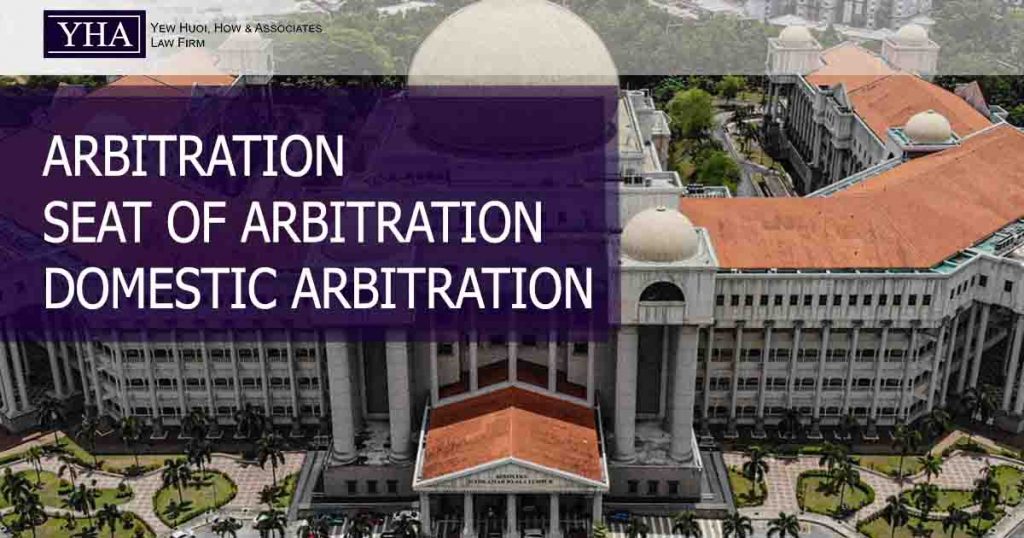In brief
- The Federal Court held in Masenang Sdn Bhd v Sabanilam Enterprise Sdn Bhd that the courts of first instance of the place specified as the seat of arbitration in Malaysia have exclusive supervisory jurisdiction over arbitrations seated there, including any award arising from such proceedings. In this regard, a court of a Malaysian state that is not the court of the arbitration’s seat will have no supervisory authority over the arbitration or its award. As a result, parties desiring to have their arbitrations seated in Malaysia must select a specific Malaysian state or city as the arbitration seat.
Q. What happens if one High Court recognizes an arbitral award but another High Court refuses to recognize the identical arbitral award?
A. In Masenang Sdn Bhd v. Sabanilam Enterprise Sdn Bhd, the Federal Court was faced with this situation. [1] The Federal Court unanimously decided on 3.9.2021, that the seat of arbitration cannot simply be “Malaysia” as a whole, even for domestic arbitrations. The seat, i.e., a specific site in Malaysia, must be stated, and the courts in that location shall have exclusive supervisory jurisdiction. Because it would “give rise to deception and disorder,” and the party can no longer bring a challenge to the courts anywhere in Malaysia.
What is the law that governs both domestic and international arbitrations?
- Both domestic and international arbitrations in Malaysia are governed by the Arbitration Act 2005 (“AA 2005”). Section 2 of the AA 2005 defines “High Court” to mean the “High Court in Malaya and the High Court in Sabah and Sarawak or either of them, as the case may require…”.
- The seat of arbitration is dealt with in Section 22 of the AA 2005, which states that: 1) The parties are allowed to agree on the seat of arbitration. (2) If the parties fail to agree under subsection (1), the arbitral tribunal will select the seat of arbitration based on the facts of the case, including the convenience of the parties.
- Furthermore, Section 37 of the AA 2005 allows for the revocation of both domestic and international arbitral awards: (1) The High Court may set aside an award only if…”
- As a result, the reference to the “High Court” in Section 37 of the AA 2005 refers to either the High Court in Malaya or the High Court in Sabah and Sarawak, as the case may be. The question is whether the High Court of Malaya and the High Courts of Sabah and Sarawak have independent supervisory jurisdictions over arbitrations or arbitral awards in Malaysia
Decision of Federal court
- The Federal Court initially evaluated whether the principle of the “juridical seat” of arbitration has relevance or application in domestic arbitrations within Malaysia before going into the legal issues.
- The Federal Court, in contrast to the Court of Appeal, found that the seat of arbitration in a domestic arbitration, i.e., the specified location within Malaysia, is a relevant consideration in determining the jurisdiction of the courts, in order to avoid multiple proceedings and conflicting decisions, and, most importantly, to maintain party autonomy.
- Because the arbitration is held in Kuala Lumpur, the KL High Court has exclusive supervisory authority over the arbitration and, naturally, the Award. The KK High Court’s judgement to set aside the Award, KK High Court Decision No. 2, was thus declared null and void, and the KL High Court’s decision allowing the Award to be recognized and enforced, i.e., KL High Court Decision, prevailed.
Conclusion
- The Federal Court’s decision harmonizes the concept of “juridical seat” in domestic arbitration with that in international arbitration, where if the parties agree that the seat of arbitration should be Kuala Lumpur, Malaysia, the court with supervisory jurisdiction over the arbitration must be the High Court of Malaya in Kuala Lumpur.
- It makes no difference where the cause of action arose; the appointed seat of arbitration determines which court has supervisory authority over the arbitration.

